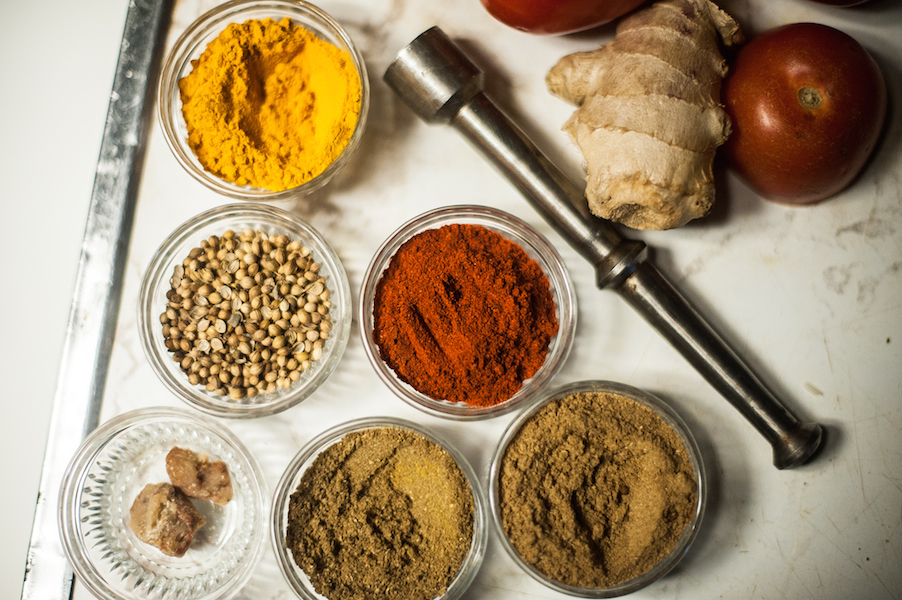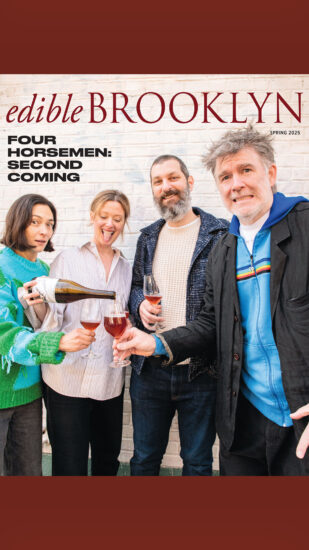The secret, she tells a group gathered at her Kensington home for a class on Mughlai cooking, lies in her massive masala dabba. “Masala” means spice, “dabba” means box, and Banerjee’s is the traditional tin type you can pick up in Indian and Pakistani neighborhoods like her own. Banerjee has so many spices—from asafetida to nigella—they overflow the dabba and take over her dining room table.
They’ll season a Greenmarket haul of radishes, eggplant, cauliflower and pumpkin, nut-laced biryani and lusciously spiced lamb. Mukti, a botanist who loves eating from her garden, has also hosted demonstrations at the Grand Army Plaza Greenmarket.
Her message—that Indian cooking is not hard, once you’ve got your own little masala dabba—is partly why the Kolkata native started hosting cooking classes in her clapboard house near Coney Island Avenue.
The other reason is that she was ready for a change. A molecular geneticist, she moved to the city in 1999, scoring a backyard where she could grow the chilies she uses in almost everything. As she approached retirement, friends urged her to professionalize her passion.
So three years ago she created a little business called Mukti’s Kitchen. Today a growing host of regulars stop in for a $65, three-hour session or a daylong hangout that includes a trip to the Indian markets along Foster Avenue.
Students might make Ayurvedic dishes, lamb biryani, or those flaky Indian crepes called dosas. But don’t picture some show kitchen stocked with expensive equipment: She’s using a plate as a lid, swears by her old rice cooker with the broken handle and keeps up the woodland wallpaper hung circa 1953.
We grind spices, tasting and asking questions, much the way Mukti learned to cook from her mother and grandmother. While you chop purple onions, she explains her magic mix of toasted spices, oil-browned onions, tomato and cilantro.
You leave full of fresh flavors and new knowledge: how to gently roast spices before you cook, how frying oil tells you it’s time to add the next ingredient, that red onions have a stronger flavor Indian cooks prefer.
“I’m really lucky,” Banerjee says, “that I’m carrying my master craft from my mother and grandmother to my friends.” But walking home, smelling like a masala dabba, we know we are the lucky ones.
Photo credit: John Taggart



